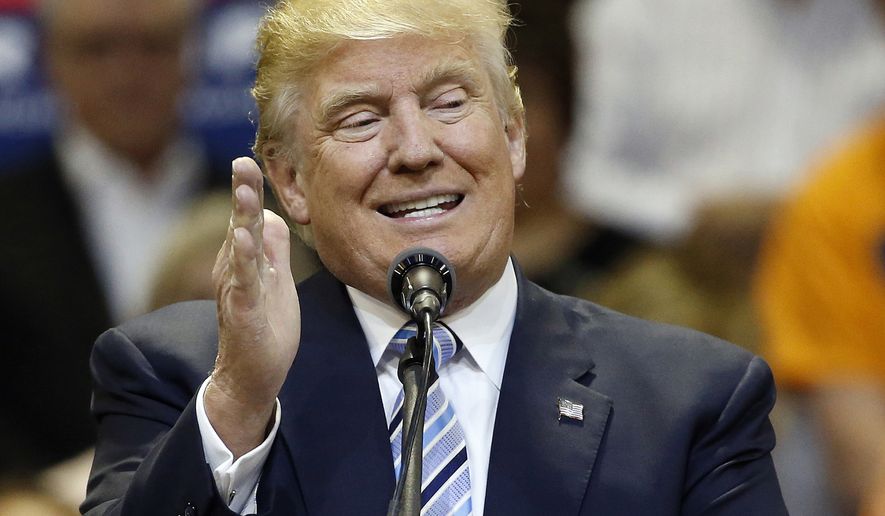A federal judge in D.C. has dismissed a lawsuit alleging President Trump’s election campaign conspired with Russian hackers and WikiLeaks to publish stolen Democratic National Committee documents during the 2016 race.
U.S. District Judge Ellen Segal Huvelle ruled Tuesday in favor of tossing out the invasion of privacy lawsuit over lack of jurisdiction, writing in a 45-page opinion that the plaintiffs — two DNC donors and a former staffer affected by the leak — failed to adequately connect the alleged crimes to the nation’s capital.
“Campaign meetings, canvassing voters, and other regular business activities of a political campaign do not constitute activities related to the conspiracies alleged in the complaint,” wrote Judge Huvelle, an appointee of former President Bill Clinton. “The same is true of the fact that the Trump Campaign’s foreign policy team was based in the District. Its mere presence here, without it undertaking overt acts in furtherance of the conspiracies, does not represent a suit-related contact.
“It bears emphasizing that this Court’s ruling is not based on a finding that there was no collusion between defendants and Russia during the 2016 presidential election,” she added. “This is the wrong forum for plaintiffs’ lawsuit. The Court takes no position on the merits of plaintiffs’ claims.”
Watchdog group Protect Democracy filed the lawsuit in July 2017 on behalf of DNC donors Eric Schoenberg and Roy Cockrum and former DNC staffer Scott Comer. Their personal information became publicly accessible after WikiLeaks released internal DNC data in 2016 allegedly sourced by Russian state-sponsored hackers.
Their attorneys subsequently claimed that the Trump campaign and Roger Stone, a former Trump campaign adviser, had colluded with both Moscow and the anti-secrecy website as “part of a deliberate campaign to interfere in the U.S. election and tilt its outcome in favor of Donald Trump” — an allegation currently being investigated by federal authorities including special counsel Robert Mueller.
“While we are disappointed in and respectfully disagree with today’s decision from the District Court to dismiss this case on the grounds that it does not belong in Washington, D.C., this case is far from over,” Protect Democracy said in a statement in response to the judge’s ruling.
Ian Bassin, Protect Democracy’s executive director, said the group “will consider our options and will continue to fight to ensure that our clients get the justice they deserve and that the Trump campaign and its associates will be held accountable for their actions.”
The U.S. intelligence community concluded in early 2017 that Russian state-sponsored hackers had breached the DNC and other targets as part of a Kremlin-authorized campaign that involved relaying the documents to outlets including WikiLeaks for publication.
Mr. Mueller was appointed by the Justice Department in May 2017 to investigate the race and any potential collusion between the Trump campaign and Russia.
Earlier Tuesday, meanwhile, the Senate Intelligence Committee announced that its own bipartisan investigation affirmed the results of the government’s previous conclusions with respect to Russia’s election meddling.
Russia has previously denied interfering in the 2016 election, and the Trump campaign and Mr. Stone has denied colluding with Russia or WikiLeaks to release stolen documents during the race.
Mr. Stone said in a statement that he is “gratified and delighted” by the judge’s ruling.
“Even though the case was not decided on this basis, plaintiffs provided no evidence or proof whatsoever of their central left-wing conspiracy theory: that I somehow worked with the Russian state to hack the DNC email servers and shared the fruits of this alleged hacking with Wikileaks or the Trump campaign. This is false and can therefore never be proven in any jurisdiction,” Mr. Stone said.
WikiLeaks publisher Julian Assange has previously claimed that the source of the DNC leak was unaffiliated with the Russian government.
• Andrew Blake can be reached at ablake@washingtontimes.com.




Please read our comment policy before commenting.